Join our list
Subscribe to our mailing list and get interesting stuff and updates to your email inbox.
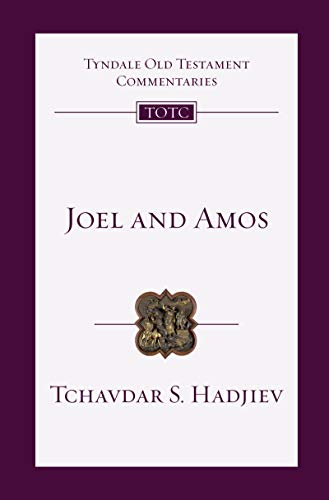 Author(s): Tchavdar S. Hadjiev
Author(s): Tchavdar S. HadjievPublisher: IVP Academic
Price: $2.99 (Dec 13-14)
Joel’s arresting imagery―blasting trumpet, darkened sun, and marching hosts―has shaped the church’s eschatological vision of a day of wrath. Amos’s ringing indictments―callous oppression, heartless worship, and self-seeking gain―have periodically awakened the conscience of God’s people. Twenty-five-hundred years later, those prophetic words still speak powerfully. This Tyndale commentary by Tchavdar Hadjiev on the books of Joel and Amos examines their literary features, historical context, theology, and ethics.
The Tyndale Commentaries are designed to help the reader of the Bible understand what the text says and what it means. The Introduction to each book gives a concise but thorough treatment of its authorship, date, original setting, and purpose. Following a structural Analysis, the Commentary takes the book section by section, drawing out its main themes, and also comments on individual verses and problems of interpretation. Additional Notes provide fuller discussion of particular difficulties.
In the new Old Testament volumes, the commentary on each section of the text is structured under three headings: Context, Comment, and Meaning. The goal is to explain the true meaning of the Bible and make its message plain.
 Author(s): David W. Pao
Author(s): David W. PaoPublisher: IVP Academic
Price: $2.99 (Nov 22-23)
“Be thankful” (Colossians 3:15) is a recurring exhortation in the letters of the apostle Paul. No other New Testament writer gives such a sustained emphasis on thanksgiving―and yet, major modern studies of Paul fail to wrestle with it.
David Pao aims to rehabilitate this theme in this comprehensive and accessible study, a New Studies in Biblical Theology volume. He shows how, for Paul, thanksgiving is grounded in the covenantal traditions of salvation history. To offer thanks to God is to live a life of worship and to anticipate the future acts of God, all in submission to the lordship of Christ. Ingratitude to God is idolatry. Thanksgiving functions as a link between theology, including eschatology, and ethics.
Here Pao provides clear insights into the passion of an apostle who never fails to insist on the significance of both the gospel message and the response this message demands.
Addressing key issues in biblical theology, the works comprising New Studies in Biblical Theology are creative attempts to help Christians better understand their Bibles. The NSBT series is edited by D. A. Carson, aiming to simultaneously instruct and to edify, to interact with current scholarship and to point the way ahead.
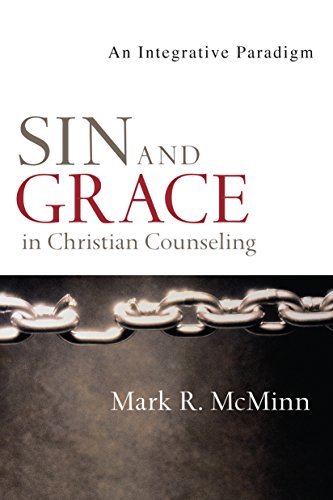 Author(s): Mark R. McMinn
Author(s): Mark R. McMinnPublisher: IVP Academic
Price: $2.99 (Oct 11-12)
Sin. Grace. Christian Counseling.
How do these fit together?
In Christian theology sin and grace are intrinsically interconnected. Teacher and counselor Mark McMinn believes that Christian counseling, then, must also take account of both human sin and God’s grace. For both sin and grace are distorted whenever one is emphasized without the other.
McMinn, noting his own tendencies and the temptation to stereotype different Christian approaches to counseling along this theological divide, aims to help all those preparing for or currently serving in the helping professions. Expounding the proper relationship of sin and grace, McMinn shows how the full truth of the Christian gospel works itself out in the functional, structural and relational domains of an integrative model of psychotherapy.
 Author(s): Samuel Bray
Author(s): Samuel BrayPublisher: IVP Academic
Price: $2.99 (Oct 4-5)
The Book of Common Prayer (1662) is one of the most beloved liturgical texts in the Christian church, and remains a definitive expression of Anglican identity today. It is still widely used around the world, in public worship and private devotion, and is revered for both its linguistic and theological virtues.
But the classic text of the 1662 prayer book presents several difficulties for contemporary users, especially those outside the Church of England. The 1662 Book of Common Prayer: International Edition gently updates the text for contemporary use. State prayers of England have been replaced with prayers that can be used regardless of nation or polity. Obscure words and phrases have been modestly revised―but always with a view towards preserving the prayer book’s own cadence. Finally, a selection of treasured prayers from later Anglican tradition has been appended.
The 1662 prayer book remains a vital resource today, both in the Anglican Communion and for Christians everywhere. Here it is presented for continued use for today’s Christians throughout the world.
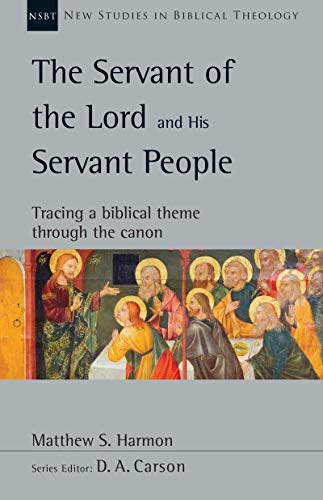 Author(s): Matthew S. Harmon
Author(s): Matthew S. HarmonPublisher: IVP Academic
Price: $2.99 (Sept 27-28)
It is often recognized that the title “servant” is applied to key figures throughout the Bible, culminating in Jesus Christ. In this New Studies in Biblical Theology volume Matthew Harmon carefully traces this theme from Genesis to Revelation with the intention of seeing how earlier servants point forward to the ultimate Servant. While this servant theme certainly is significant in its own right throughout redemptive history, it also plays a supporting role, enhancing and enriching other themes such as son, prophet, and king.
Harmon shows how the title “servant” not only gives us a clearer understanding of Jesus Christ but also has profound implications for our lives as Christians. When we grasp what it means to be servants of Christ, our love for him and our obedience to him deepen. Understanding that the ultimate Servant Jesus Christ indwells his people to empower them to serve others in love has the potential to transform how we interact with fellow believers and the world around us.
Addressing key issues in biblical theology, the works comprising New Studies in Biblical Theology are creative attempts to help Christians better understand their Bibles. The NSBT series is edited by D. A. Carson, aiming to simultaneously instruct and to edify, to interact with current scholarship and to point the way ahead.
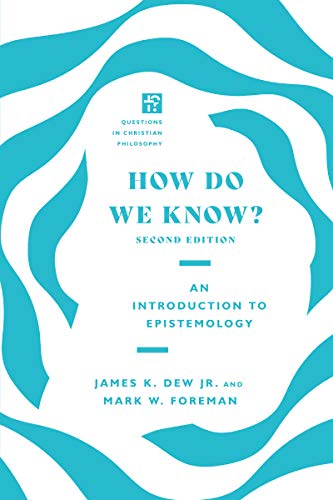
Publisher: IVP Academic
Price: $4.99 (Ends Sept 29)
What does it mean to know something? Can we have confidence in our knowledge?
Epistemology, the study of knowledge, can often seem like a daunting subject. And yet few topics are more basic to human life. We are inquisitive creatures by nature, and the unending quest for truth leads us to raise difficult questions about the quest itself. What are the conditions, sources, and limits of our knowledge? Do our beliefs need to be rationally justified? Can we have certainty?
In this primer on epistemology, James Dew and Mark Foreman guide readers through this discipline in philosophy. This second edition has been expanded with new material and now serves as the first volume in IVP’s Questions in Christian Philosophy series. By asking basic questions and using clear, jargon-free language, they provide an entry into one of the most important issues in contemporary philosophy.
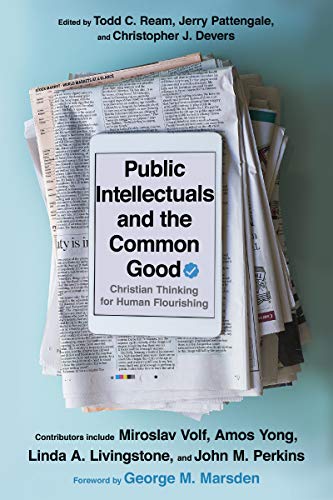 Author(s): Various Authors
Author(s): Various AuthorsPublisher: IVP Academic
Price: $2.99 (Aug 23-24)
Evangelical Christians are active across all spheres of intellectual and public life today. But a disconnect remains: the work they produce too often fails to inform their broader communities. In the midst of a divisive culture and a related crisis within evangelicalism, public intellectuals speaking from an evangelical perspective have a critical role to play―within the church and beyond. What does it look like to embrace such a vocation out of a commitment to the common good?
Public Intellectuals and the Common Good draws together world-class scholars and practitioners to cast a vision for intellectuals who promote human flourishing. Representing various roles in the church, higher education, journalism, and the nonprofit sector, contributors reflect theologically on their work and assess current challenges and opportunities. What historically well-defined qualities of public intellectuals should be adopted now? What qualities should be jettisoned or reimagined?


